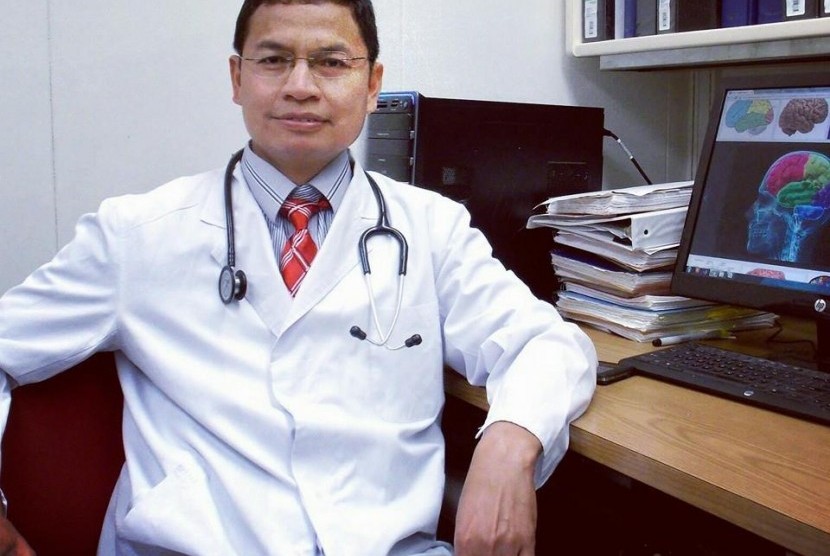By Taruna Ikrar*
REPUBLIKA.CO.ID, Globalization impacts all aspects of life, especially that of health services. In the phase of globalization, all countries will be interdependent on each other, meaning that no single nation on Earth will be able to stand alone in terms of health care. These challenges, of course, will have a direct impact on the development of health services in of Indonesia.
The future challenge facing the health sector is the emergence of new diseases, due to mutation of the various types of viruses and bacteria, and also the impact of changing environmental conditions and human lifestyles, which generally develops as follows: Epidemic infectious diseases spreading past the state boundaries and territories. Various epidemic diseases such as HIV / AIDS, cholera, and SARS and swine flu threatens not only its place of origin, but will spread all over the world, becoming dangerous life-threatening global pandemics.
The dramatic shift from acute to chronic diseases has an impact on health service strategies, which in the past focused mainly on curative aspects of treatment, but in the future the health services have to shift their focus on preventive aspects of medicine via public health education, vaccination programs and promoting healthy lifestyle changes in society. Therefore, there will be less pressure on the curative aspects treatment and rehabilitation.
This condition is marked by great changes in mortality rates and disease morbidities due to infectious diseases, degenerative diseases, and disease of cardio-cerebra-vascular, diabetes, and other degenerative disorders.
In addition, recent advances in medical science has developed detection and diagnosis of disease at a molecular and genetic level (Have been completion of the Human Genome Project). Recent discoveries have focused on understanding the pathogenesis, physiology, genetic and molecular aspects of medicine, in particular stem cell and regenerative therapies will be a future trend of medicine.
Regenerative medicine has rapidly developed in the biomedical field due to an explosion of scientific advancement throughout the world and will have an important impact on health care. This new field of tissue engineering is the fruit of the multidisciplinary sciences such as biology, biochemistry, physics, and chemistry.
Regenerative medicines will lead to the creation of biological tissues and organs that can replace or regenerate tissues and organs damaged by disease, injury, or congenital hereditary. It also aims to grow tissues and organs in vitro (in lab) which are safe for human transplant eventually eliminating the current serious problem of long waiting lists due to shortage of donor organs.
This revolutionary technology has the potential to develop disease therapies previously impossible to treat. Examples of current diseases very difficult and costly to treat are: diabetes, heart disease, kidney failure, and osteoporosis and spinal injuries and blindness due to retinal disease. But with the development of regenerative medicine, such as stem cells, gene therapy and so forth, these diseases will be cured more effectively and with less cost both the government and the patients.
The above developments in medicine require a special strategy for Indonesia in an effort to provide Globalization impacts all aspects of life, especially that of health services. In the phase of globalization, all countries will be interdependent on each other, meaning that no single nation will be able to stand alone in terms of health care, Education to people in the health field and these new cutting edge treatments and services to the citizens.
Similarly, in an effort to keep pace with developments and contribute to the science and technology of the future, (so that Indonesia is not left far behind), required special attention and investment from the Indonesian government, including providing Indonesian scientists the funding and opportunities to do scientific work abroad.
The implementation of the strategy of strong funding and collaborative international scientific research will not only medically and scientifically advance Indonesia, but it will also place Indonesia as a well-respected member of the scientific and medical community in the international stage.
Base on above arguments, Indonesia should make a serious effort to implement a Blue Print to advance the biomedical sciences by establishing a camaraderie and partnership with developed countries in the world which will serve as a vehicle for the transfer of skills, technology, and the advancement of science.
Another important issue is to revise the higher education system in Indonesia, especially the model of teaching and learning. Furthermore, it is time to apply the education curriculum based on an evidence-based model while also following and incorporating developments and medical knowledge from the rich indigenous local Indonesian traditions into a scientific framework.
Health services management, which began with the reform of health care systems, has been shifted based on the level of preventive cures. The shift was followed by a change in policy at the national level and continuing to regional security efforts in the form of improved public health (Health Insurance), service by doctors, drug availability, and readiness of hospitals throughout Indonesia. These shifts in policy were performed with the outlook to serve the needs and rights of patients in Indonesia.
Human health services are now operating in a global era and Indonesia’s health services should be no exception to this trend. The globalization of the Indonesian health services should ultimately improve the quality of care by training better health professionals and lowering costs through improved medical technology and competition.
Furthermore, besides improvements in the quality of care, a more globalized health system would be more egalitarian making medical treatment more affordable and accessible to all citizens irrespective of income.
Finally, such an approach will generate revenue by encouraging citizens to be treated at in the country and also Indonesia will become an attractive option for citizens of other countries to sort medical treatment. Such a system would be welcomed and respected by Indonesian people.
*Professor and Dean, School of Biomedical Sciences, National Health University, California, USA
*Adjunct Professor, Department of Neurology, Faculty of Medicine, University of Hasanuddin, Indonesia



